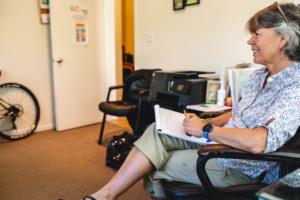The Difference Between Unipolar and Bipolar Depression
 Bipolar disorder and major depression share some similarities. They are sometimes confused because both can include depressive episodes, but there are some key differences.
Bipolar disorder and major depression share some similarities. They are sometimes confused because both can include depressive episodes, but there are some key differences.
The main difference between the two is that depression is unipolar, meaning that there are no periods of abnormally elevated mood, while bipolar disorder includes symptoms of mania.
In a recent article for PsychCentral, Sonya Matejko explored the distinction between the two conditions. “To put it simply, unipolar depression is another name for major depressive disorder (MDD), also known as clinical depression,” she wrote. “This mood disorder is characterized by a persistent feeling of sadness or a lack of interest in things that you used to enjoy.”
According to the current edition of the Diagnostic and Statistical Manual of Mental Disorders (DSM-5) used by psychiatrists to diagnose mental health conditions patients must experience the following to receive an MDD (unipolar depression) diagnosis:
- symptoms for two weeks or longer
- episodes of depression or significant loss of interest, or both
- a change in the way you previously functioned
Diagnostic criteria include experiencing five or more of the following symptoms in a two-week period:
- feeling sad or irritable
- trouble falling asleep
- feeling worthless or guilty
- intense feelings of restlessness
- change in appetite or sudden weight loss
- lack of energy or unusual sense of tiredness
- loss of interest in activities you once enjoyed
- difficulty with decision making or concentrating
- having thoughts about self-harming
In unipolar depression, there is one prolonged mood episode—a major depressive episode, i.e. a period characterized by symptoms of major depressive disorder. “This is in comparison with other mental health conditions, like bipolar disorder, which may lead you to experience changes in your mood, from depression to mania, an elevated mood state,” wrote Matejko.
Bipolar depression, on the other hand, is a term used to describe depression within bipolar disorder. It’s not so much a condition by itself but rather a symptom of depression for someone living with bipolar disorder.
According to the American Psychiatric Association, “people with bipolar disorder experience intense emotional states that typically occur during distinct periods of days to weeks, called mood episodes. These mood episodes are categorized as manic/hypomanic (abnormally happy or irritable mood) or depressive (sad mood). People with bipolar disorder generally have periods of neutral mood as well.”
The National Institute of Mental Health lists three types of bipolar disorder:
Bipolar I disorder is defined by manic episodes that last at least seven days, or by manic symptoms that are so severe that the person needs immediate hospitalization. Usually, depressive episodes occur as well, typically lasting at least two weeks. Episodes of depression with mixed features (having depressive symptoms and manic symptoms at the same time) are also possible.
Bipolar II disorder is defined by a pattern of depressive episodes and hypomanic episodes, but not the full-blown manic episodes that are typical of bipolar I disorder.
Cyclothymic disorder (also called cyclothymia) is defined by periods of hypomanic symptoms as well as periods of depressive symptoms lasting for at least two years in adults. However, the symptoms do not meet the diagnostic requirements for a hypomanic episode and a depressive episode.
All three types involve clear changes in mood, energy, and activity levels. These moods range from periods of extremely “up,” elated, irritable, or energized behavior (known as manic episodes) to very “down,” sad, indifferent, or hopeless periods (known as depressive episodes). Less severe manic periods are known as hypomanic episodes.
It is primarily the alternation between mood episodes that differentiates bipolar depression from unipolar or clinical depression. The most significant difference is that the latter does not include episodes of mania as a major symptom.
Colorado Recovery provides the services needed to address schizophrenia, bipolar disorder, and other serious mental illnesses which are specific to each individual. Call us at 720-218-4068 to discuss treatment options for you or the person you would like to help.





